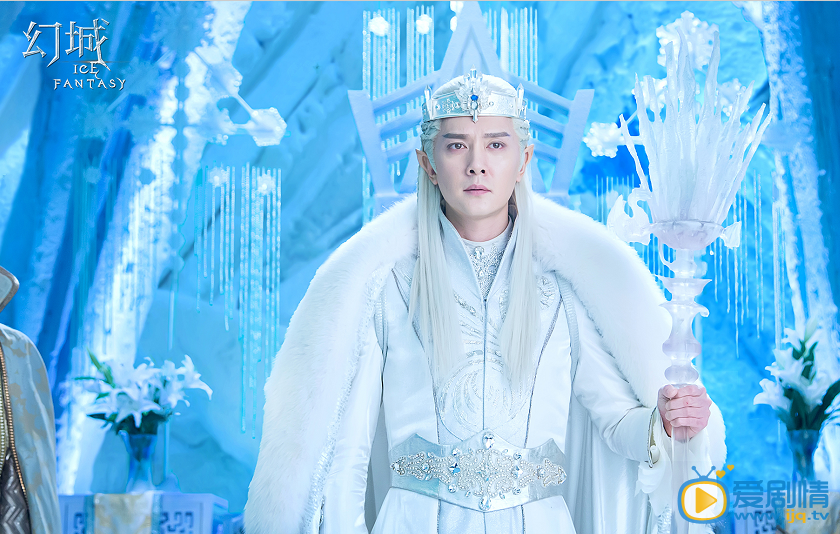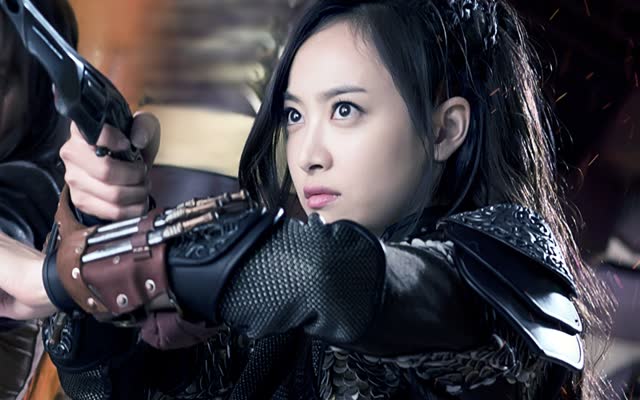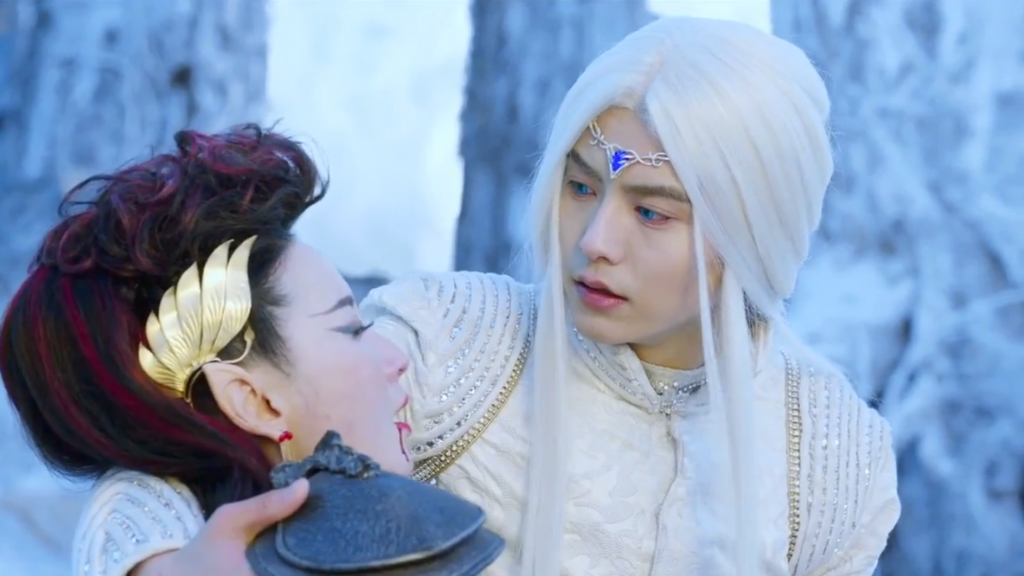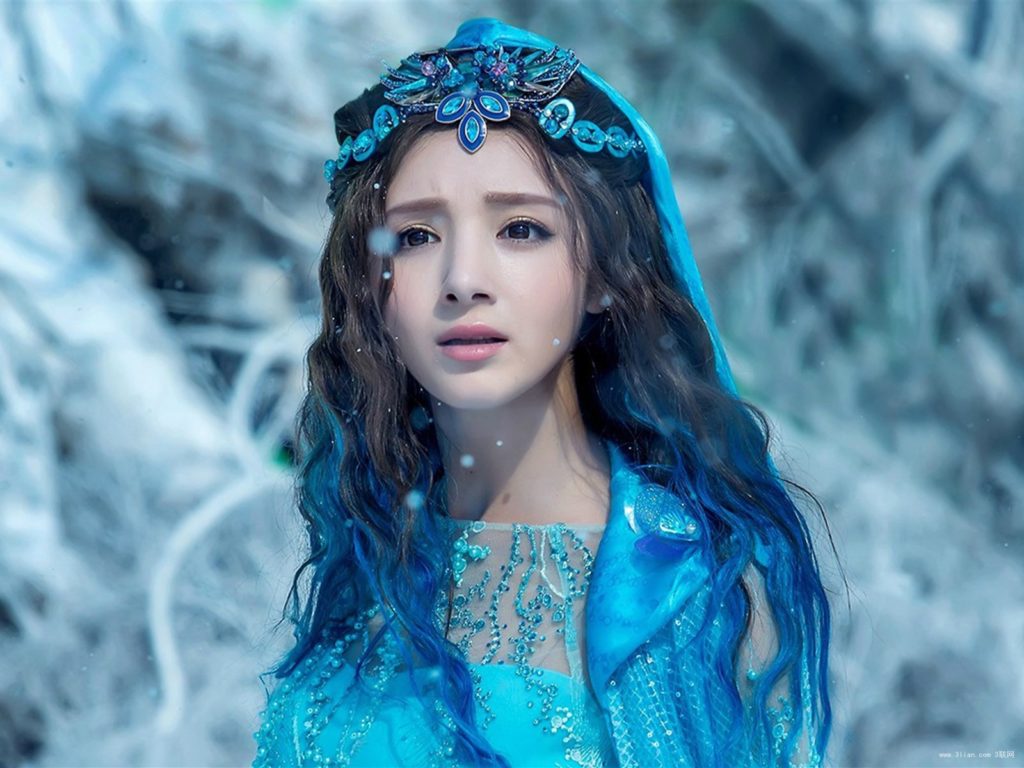Let’s start by saying that Ice Fantasy, or 幻城 (Huànchéng), is a guilty pleasure. The sets are creative, backgrounds and special effects are impressive, and later there are some unexpected plot twists.
Let there also be a warning: it’s very cheesy. Dedicated fans of Chinese fantasy may appreciate its escapism, while those who prefer their epics to be a little more serious will be turned off by the unnecessary flashbacks, limited soundtrack and what seems, at first, an obvious plot.
幻城 translates as City of Illusion or Fantasy City. The story centres on the ill-fated romance between a mortal, Líluò (梨落) and an immortal Kǎsuǒ (卡索). Liluo, charmingly played by Victoria Song, is dispatched to escort Kasuo (Féng Shàofēng, 冯绍峰) safely back to the immortal world. In a pleasing inversion of male-female roles she frequently comes to the rescue of Kasuo.

Of course, no one could foresee that Kasuo and Liluo might develop a thing for each other despite the age difference (only about 100 years). Love between mortals and immortals never seems to work out. Still, I’d like to try it. Such love, which burns ever so brightly, has unforeseen consequences. Just ask the lovers in Legend of the White Snake.
Pretty much everyone in Ice Fantasy likes someone else. Rather than a love triangle we have a love pentagon, with Fish Princess Lánshang 岚裳 (Madina Memet) in love with Kasuo, Kasuo’s younger brother Ying Kongshi (樱空释) wants Lanshang, the Fire King’s daughter Yàn Dá 艳炟 (Zhāng Méng 张萌) is after Ying Kongshi, and we’ve barely introduced the mortals.

The original novel was by precocious and controversial young author Guō Jìngmíng (郭敬明). Guo published his first novel (City of Illusion) in 2003 when he was barely 20, yet only a year later was involved in a plagiarism scandal around his second novel. This momentarily put the breaks on his writing career, but like a phoenix, Guo has remerged as a leading director and screenwriter.
The most engaging part of Ice Fantasy is the story of Kasuo’s younger brother, Ying Kongshi (played by Mă Tiānyǔ 马天宇). Initially unable to practise magic, his mysterious origins ultimately become the force of a very powerful magic, powerful enough to upset the balance of the three kingdoms. Ying Kongshi is a fractured sole, a mixture of yin and yang, darkness and light, who’s destiny confounds even the Lotus Goddess.

There is a dual nature to many of the characters. Kasuo is noble and naïve: does he, or does he not want to be king? Will he relinquish his immortality so he can live one fulfilling mortal life with Liluo? Yan Da is torn between the dictates of her evil father and her love for Ying Kongshi. Liluo also develops a dark side. I won’t spoil that for you. But warning: expect silliness.
Good editing could have shortened this show by about 10 episodes and you may want to skip the sentimental flashbacks. Thanks to streaming, this can now accomplished by hovering over the play bar to preview when the needless flashbacks end.

One last mention goes to Fire King Houyi, father of Yan Da, played by Hu Bing with a hammed up evil laugh. It would have been nice for the writers to have crafted a less cliched ending for such a larger than life character.
Final Verdict: 6.5
Ice Fantasy was a turning point for modern Chinese fantasy. Lavish sets and costumes set the stage for more ambitious undertakings like Ashes of Love and The Untamed. Like Once Upon a Time in Lingjian Mountain, Ice Fantasy doesn’t take itself too seriously. However, commercial considerations seemed to have stretched this series ten episodes beyond its capabilities.
Essential Vocabulary:
Six leaf ice crystal: liùyè bīngjīng 六叶冰晶
Fire kingdom: huǒjiè 火界
Fire clan: huǒzú 火族
Kingdom guardian: shǒujiè shìzhě 守戒市者
Spirit devouring sword: I’ll let you work that out.
